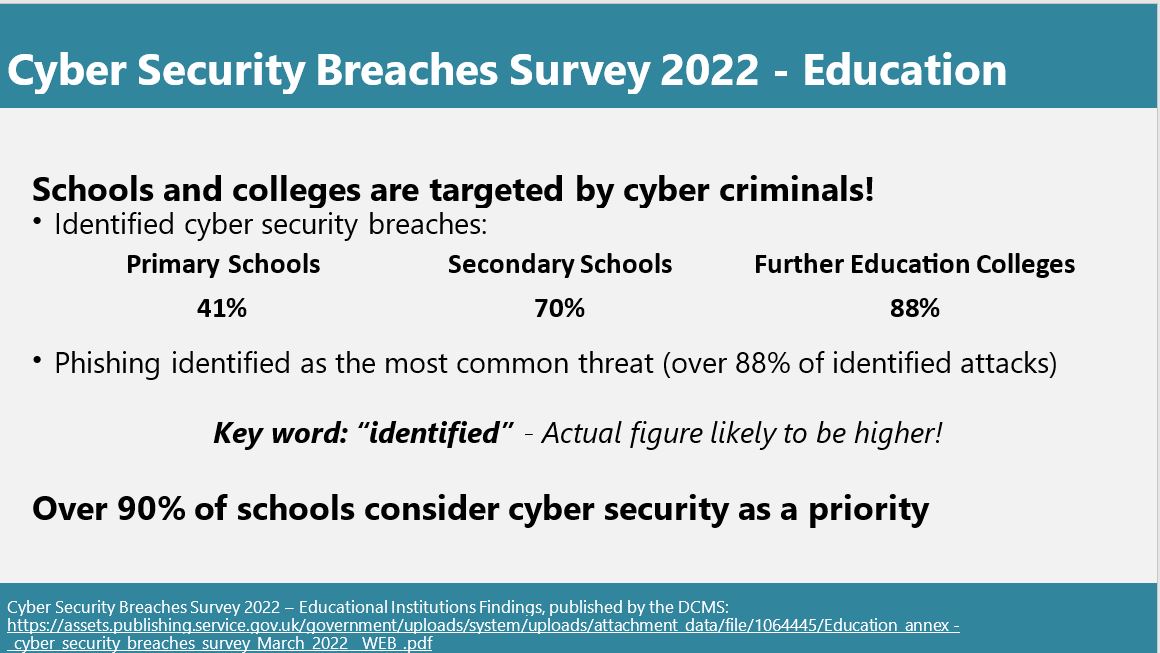
Governors and Data Best Practice Area Update
The Governors and Data Best Practice area has been updated with some new content from the Norfolk and Suffolk Constabularies. There is a training video: 'Protecting Yourself and Your School from Cybercrime' and a pdf of the slides from the video. There is input for school governors to highlight the risks presented by cyber crime and the resources and support available to help you improve your organisation's cyber security.
The objective of the video is so that governors can:

It goes on to explain what a cyber security strategy is and how to develop one for your organisation.
To view this and more guidance and support for governors, visit our Governance and Data Best Practice Area.
{module title="Cyber Attack Advice"}
The objective of the video is so that governors can:
- Recognise the foundation that a cyber security strategy provides to how an organisation responds to a cyber security incident
- Recognise the critical role that social engineering plays in cybercrime
- Minimise your digital footprint
- Create and manage strong, unique passwords
- Recognise the importance of changing a default password
- Apply two-step/multi-step verification to your accounts where available
- Take measures to defend yourself against common cyber threats

It goes on to explain what a cyber security strategy is and how to develop one for your organisation.
To view this and more guidance and support for governors, visit our Governance and Data Best Practice Area.
{module title="Cyber Attack Advice"}
